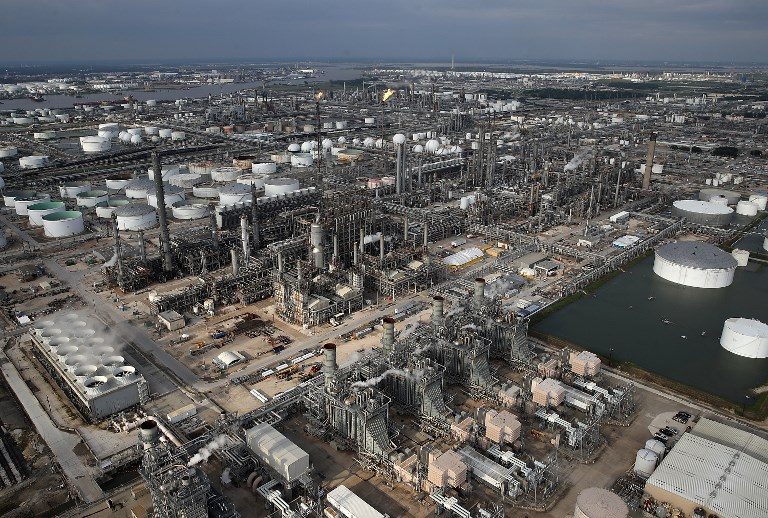SUMMARY
This is AI generated summarization, which may have errors. For context, always refer to the full article.

SINGAPORE – Crude prices fell further in Asian trade Thursday, August 31, as refineries shut down by deadly storm Harvey in the key oil-producing US Gulf Coast struggled to get back online, further piling up supplies.
The monster storm barreled into Texas on Friday, August 25, as a Category Four hurricane, smashing homes and businesses and triggering massive floods.
The storm caused the closure of refineries in the US oil-producing heartland, which traders fear will lead to bigger crude stockpiles and push down prices.
“While some Texas refiners were beginning to restart operations Wednesday as Tropical Storm Harvey moved into Louisiana, others were bringing plants down, causing a further reduction in available refining capacity,” energy information provider S&P Global Platts said.
Analysts said the storm will likely halt any oil price recovery despite an OPEC-led effort to bolster the market by slashing production until March next year.
“For now Harvey has nipped oil’s recovery in the bud,” OANDA analyst Jeffrey Halley told Agence France-Presse.
“Brent is still consolidating but the upside will be limited for US benchmark West Texas Intermediate (WTI), simply because 25% of the US refining capacity is shut down.”
In early afternoon trade, the WTI was down two cents to $45.94 a barrel and Brent dipped five cents to $50.81.
WTI sank 1.0% and Brent dived 2.2% Wednesday.
Concerns over the impact of Harvey trumped a report by the Energy Information Administration showing US stockpiles falling 5.4 million barrels in the week to August 25 – before the hurricane hit.
Inventories are expected to build in the coming weeks as refineries struggle to crank up operations and crude pumped from the ground seek outlets to be processed.
“The key issue is that because the refineries are offline, it does not mean they are damaged. We will need to wait for the flood waters to recede in order to assess this,” Halley said.
“I can’t imagine we will get much visibility for at least a week. The transportation infrastructure of refined products may also be damaged,” he added.
“I would say two weeks as an absolute best case scenario (to get refineries up). Three to four weeks if there has been substantial damage.” – Rappler.com
Add a comment
How does this make you feel?
There are no comments yet. Add your comment to start the conversation.